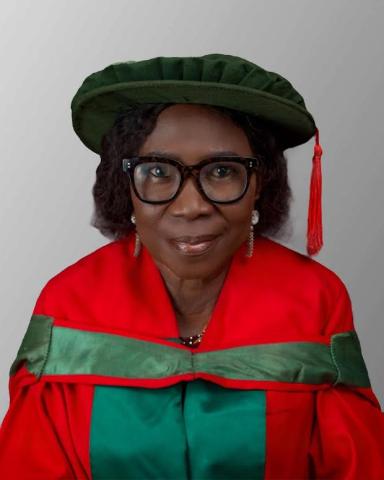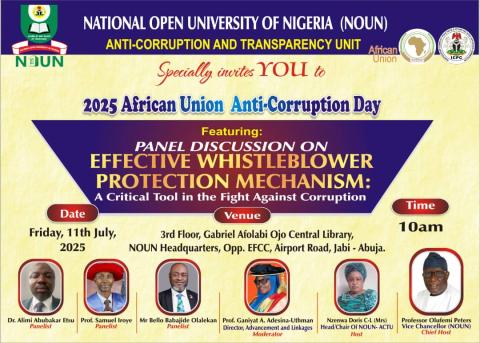NOUN Boosts Connectivity with Fibre Optic Upgrade at Headquarters and Key Study Centres
In a move designed to enhance digital accessibility and improve the learning experience, the National Open University of Nigeria (NOUN) has successfully upgraded its internet infrastructure to a state-of-the-art Fibre Optic system.
Dr. Francis Osang, the Acting Director of the Directorate of Information and Communication Technology (DICT) at NOUN, announced the completion of the first phase of the project, which brings high-speed internet connectivity to the university's headquarters and 27 strategically selected study centres across the country.
According to Dr. Osang, the upgrade will provide fast and free internet browsing for staff, students, and guests, effectively addressing the growing demand for digital resources within the university community. The new infrastructure promises a significant improvement in online learning capabilities and administrative efficiency.
In an interview with the NOUN News correspondent, Dr. Osang emphasized the advantages of Fibre Optic technology. "While alternatives like radio connections exist, Fibre Optic offers unparalleled speed and reliability, transmitting data at the speed of light," he stated, highlighting the investment's long-term value.
The initial phase of the project represents a significant milestone, bringing seamless internet access to the NOUN headquarters and the aforementioned 27 study centres. This is intended to provide a better experience for all staff and students.
“What this translates to is that the headquarters and these 27 study centres will have very fast internet connectivity,” he said.
Unlike weather-dependent connections, Fibre Optic is highly reliable and secure, promising consistent performance regardless of environmental conditions.
Dr. Osang detailed the anticipated benefits, stating, "This will greatly enhance the productivity of staff. The need for expensive personal data subscriptions will be significantly reduced, making workloads more manageable."
The improved connectivity is also expected to empower academic staff by facilitating research, online teaching, and interactive learning experiences. "The days of limited data access for academic staff are over," Dr. Osang asserted. "Lecturers will now be able to engage with students more frequently, fostering richer discussions and providing timely support."
He further explained that in the past, poor attendance during facilitation sessions was often attributed to students' lack of data. "With this upgrade, students can conveniently access lectures, participate in discussions, and complete assignments at designated study centres," Dr. Osang noted.
Dr. Osang praised Prof. Olufemi Peters, the Vice-Chancellor of NOUN, for his vision in making internet access free for all members of the university community, including staff, students, and visitors. Access is controlled through secure logins, with staff using their IDs and visitors able to obtain access credentials from security personnel.
The selection of the initial 27 study centres was based on a geo-political representation model, ensuring that all six zones of Nigeria were included. Priority was given to study centres located in university-owned buildings, ensuring the long-term security of the infrastructure investment. "It wouldn't be proper to install such expensive infrastructure on a rental property not knowing what would happen to the property," he said.
Dr. Osang underscored NOUN's commitment to driving Open and Distance Learning (ODL) through advanced technology, allowing individuals to pursue education regardless of geographical constraints.
Looking ahead, Dr. Osang revealed that the second phase of the project has been approved and will soon commence, extending Fibre Optic connectivity to more study centres, particularly those located in state capitals.
He expressed his gratitude to the Vice-Chancellor for his unwavering support and emphasized the positive impact the upgrade will have on student collaboration and engagement. “Unlike when students can stay in their different houses or outside the campus, the new internet connection will bring out students to campuses more regularly because they want to browse and the internet is free,” he said.
The project is funded through the Tertiary Education Trust Fund (TETfund) as a direct intervention to improve educational infrastructure and access across the nation.



Share your thoughts about this post